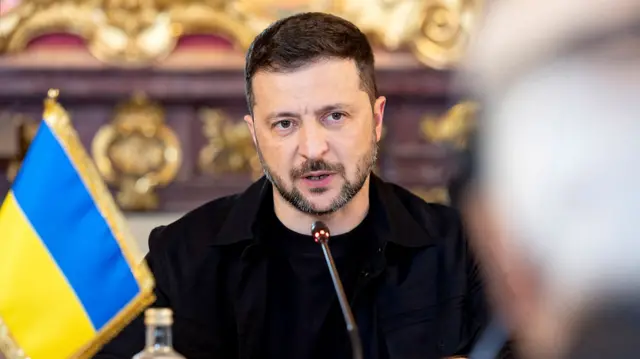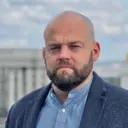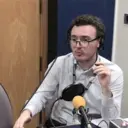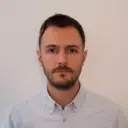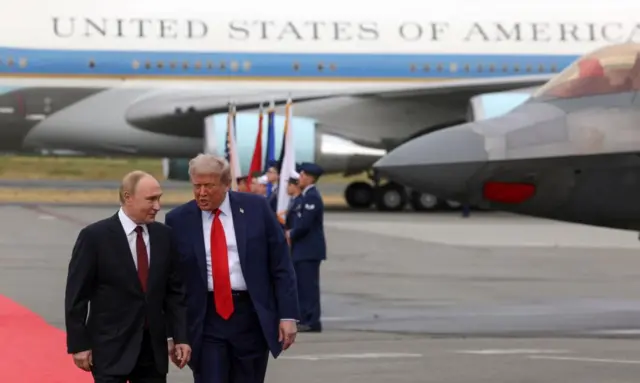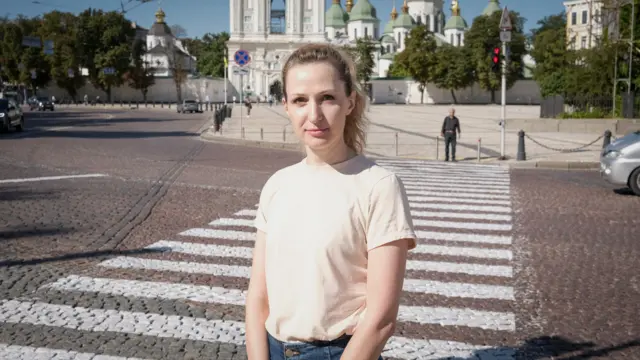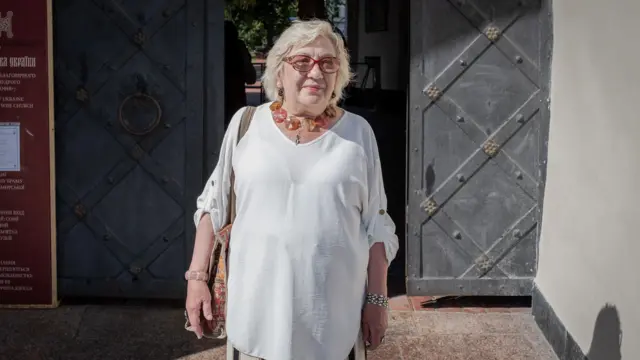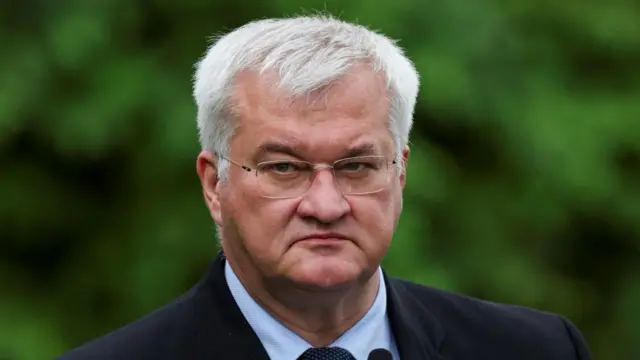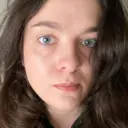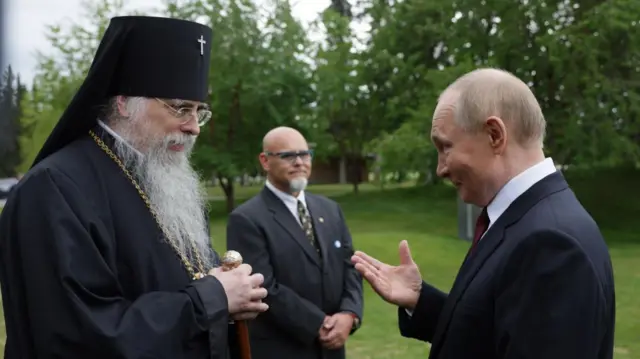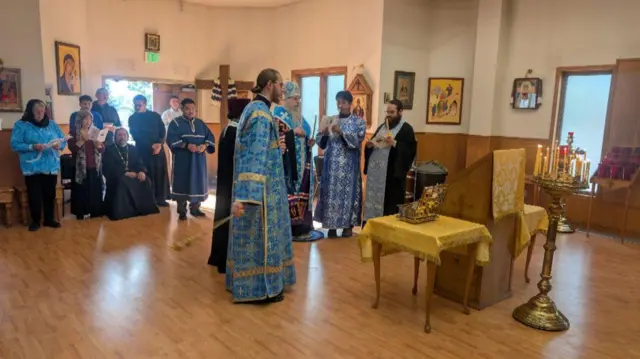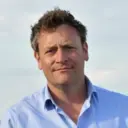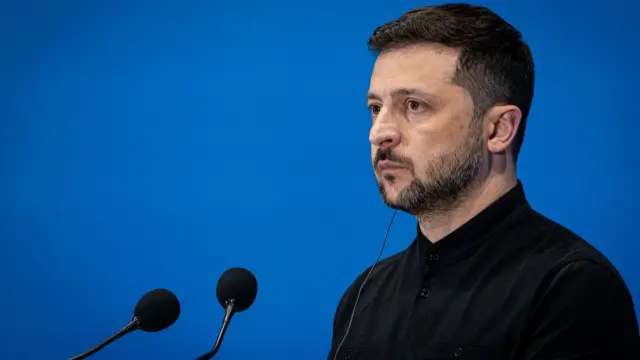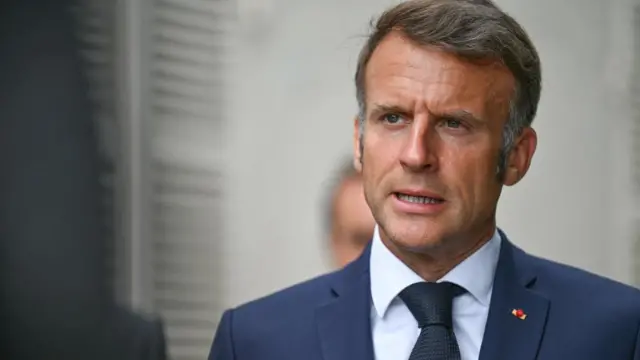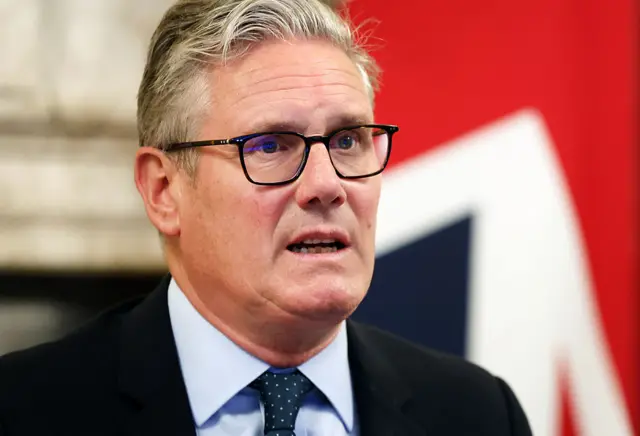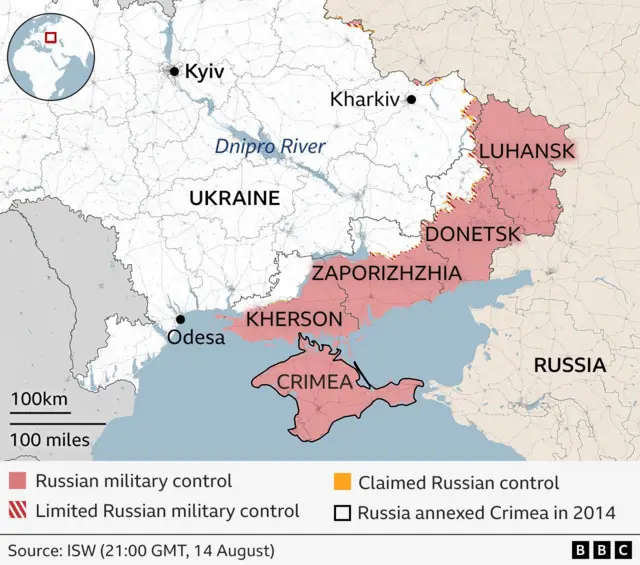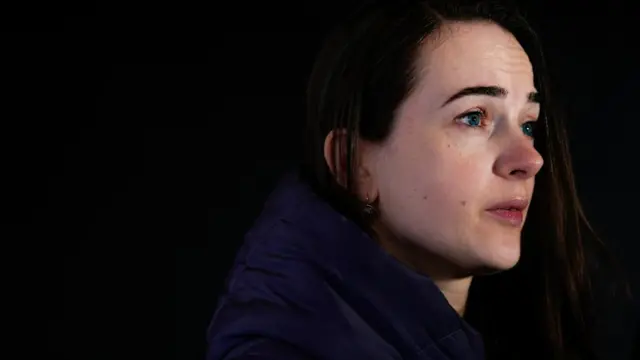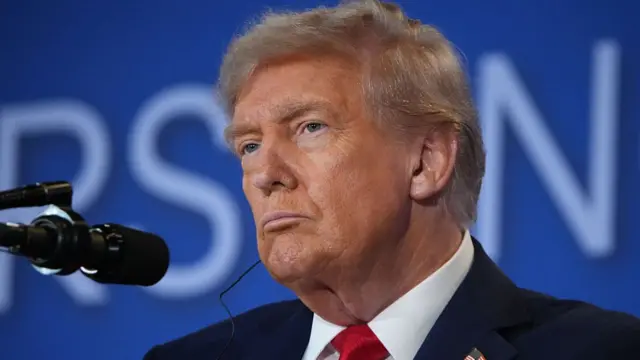What's happened since the Alaska summit?published at 14:18 BST 16 August
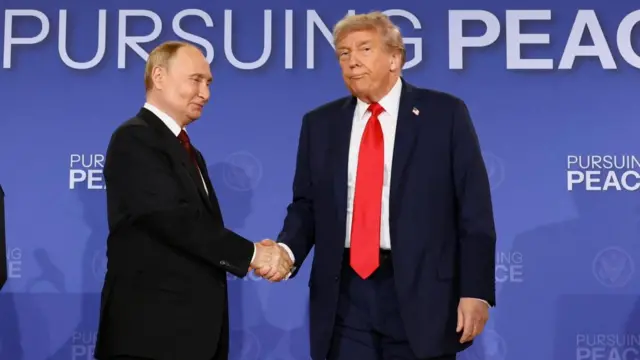 Image source, Reuters
Image source, ReutersThere have been a flurry of developments since US President Donald Trump and Russian President Vladimir Putin left the summit in Alaska without a peace deal or ceasefire for Ukraine.
Let's take a look at what the key players have said:
Donald Trump
The US president held calls with Ukrainian President Volodymyr Zelensky and Nato leaders in the hours after his summit with Putin.
Trump said on his social media platform Truth Social that the leaders were all in agreement that the best way to end the war is through a "direct peace agreement," rather than a temporary ceasefire.
The US president confirmed Zelensky will visit Washington DC for talks on Monday. "If all works out, we will then schedule a meeting with President Putin," he said.
Volodymyr Zelensky
The Ukrainian president was not invited to the summit in Alaska, but has been vocal in the hours since.
Zelensky said he told Trump in a call that sanctions on Russia should be strengthened "if there is no trilateral meeting or if Russia tries to evade an honest end to the war".
Vladimir Putin
In a statement after his meeting with Trump, Putin said he is "sincerely interested" in putting an end to the conflict in Ukraine.
He described the summit in Alaska as a "starting point for resolution" but warned that Ukraine and Europe must not "sabotage" talks.
European leaders
A joint statement from eight European leaders said they are ready to work toward a trilateral agreement and broadly agreed with Trump that the next step should be talks with Zelensky.
